When looking for a lawyer in Thailand, it is perfectly acceptable to ask a series of questions to ensure that you are talking to a certified attorney, not just a “legal” advisor, because in this country there are many offices that offer legal advice, prepare documents, etc., but aren’t lawyers.
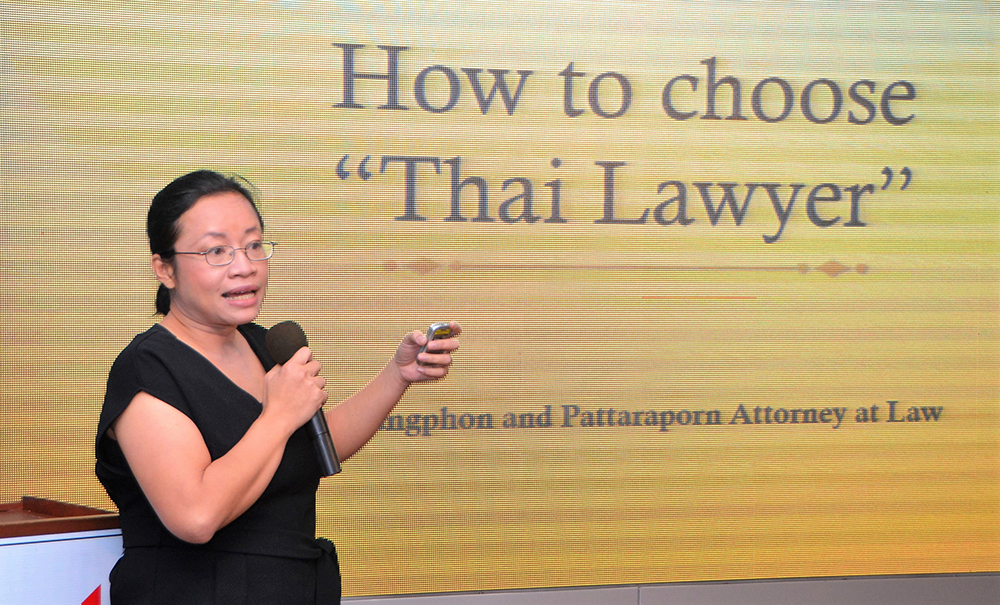
This was the advice given by Attorney-at-Law and Barrister at Law Pattaraporn (Oy) Chantaramaha, Esq., director of the law firm of Phadungphon and Pattaraporn, at the January 15 meeting of the Pattaya City Expats Club.
Oy explained that The Lawyer’s Act B.E. 2528 (1985) of Thailand sets out the conditions to obtain a law license, which is granted by the Lawyers Council of Thailand. Further, only Thais that meet certain qualifications can be licensed. First, they must earn a Bachelor of Law from either a public or private university. Second, they must pass a Lawyer Examination administered by the Lawyers Council of Thailand. Then they need one year of training before they can obtain their Lawyer License. With additional education and experience they may attain the level of Barrister at Law, which entitles the holder to take further examinations to become a judge or a public prosecutor.
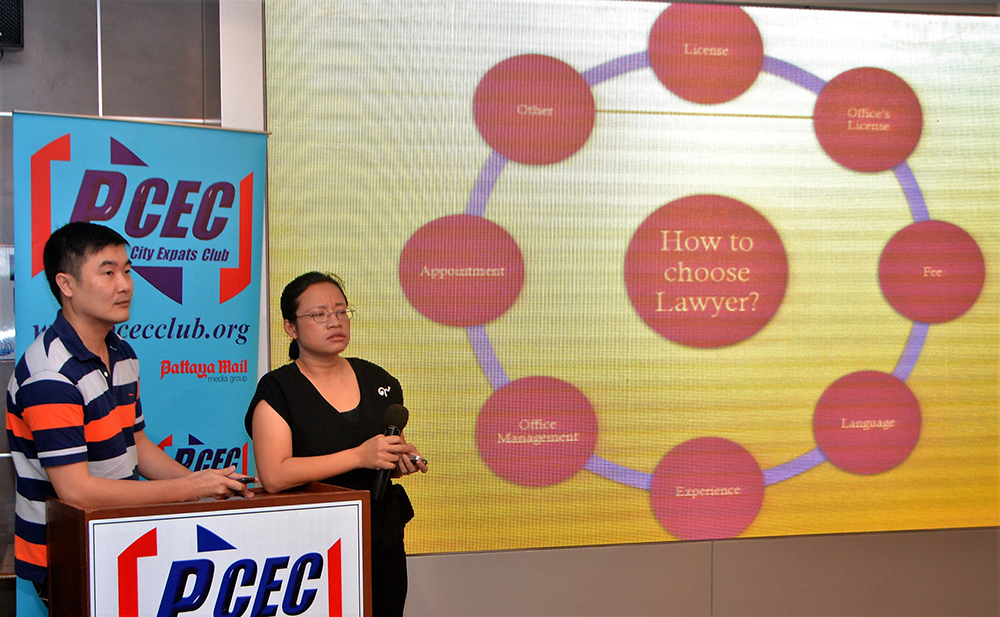
According to Oy, a notary in Thailand is not the same as in most other countries. Here, they must be a licensed lawyer, and then must take additional training to be a certified Notarial Services Attorney. They must notify the embassies, so that the embassies can tell whether or not they are an official notary.
Oy gave a checklist of things to ask about before hiring a lawyer: The lawyer’s license, the office’s license, their experience, their fee schedule, their languages, office management, and proposed appointment schedule. Also, if you need to get something notarized, ask to see their Notarial Services Certificate.
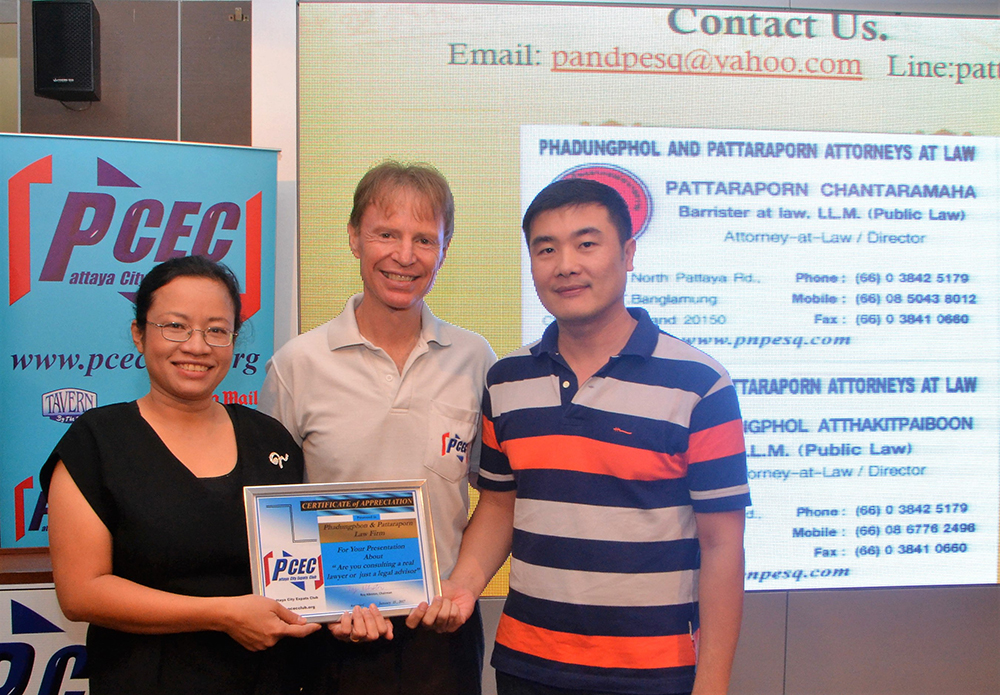
Oy showed a photo of her Lawyer License. It’s about the size of a driver’s license. The front of the license contains the attorney’s name, ID number, photo, date of birth, address, phone number, and signature. The back of the license has the header, “Lawyers Council Of Thailand.” It contains the law office name and address, the license issue date and expiration date (Oy said you should be sure to check the expiration date), and the signatures of the Lawyers Council’s Registrar and President. She said a pink license is good for two years; a blue one is good for life.
Oy showed a photo of her firm’s Legal Office’s License. It’s a letter-size document written in both Thai and English. It certifies that this office is a registered law office with the Lawyers Council of Thailand.
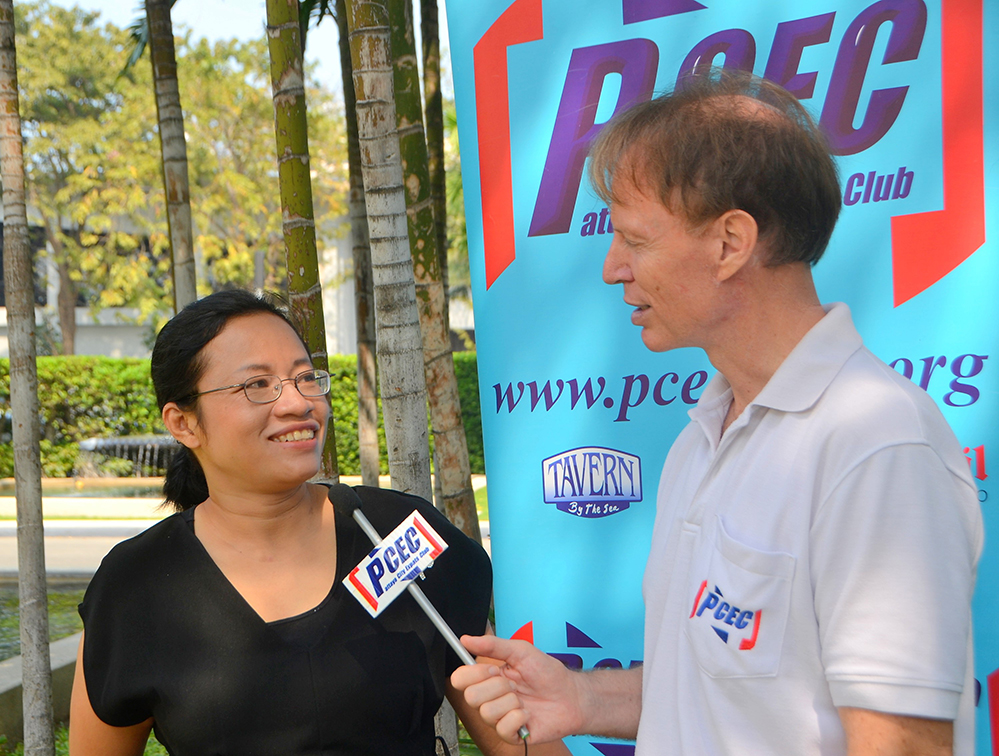
The Notarial Services certificate is similar in size and format to the Legal Office’s License, and certifies that the individual attorney “has been registered as a Notarial Services Attorney qualified to certify signatures and documents.”
Oy said the firm must have a fee schedule. Make sure you speak directly to the lawyer – not only to the translator. Ask how experienced the lawyer is in your type of case. “Don’t accept ‘believe me,’” she said. A good lawyer should explain your chances of winning or losing, and the damages you could incur if you lose. She said a good lawyer should show you examples of the types of documents that they will prepare for you. Make sure that the documents are in both Thai and English, and that both versions say the same thing. (An audience member suggested that you should hire an independent translator to translate the Thai document into English, and then make sure their English version matches the version supplied by the lawyer.)

Another tip is to make sure that you will have several office appointments with the lawyer, not just one. “You can’t understand everything in one meeting,” she said. Call for updates as necessary, and if you will be going to court, be sure to have an appointment with your lawyer two weeks prior to the court date.
There were many questions from the audience, with most being about last wills and testaments to take care of both home country and Thailand assets.
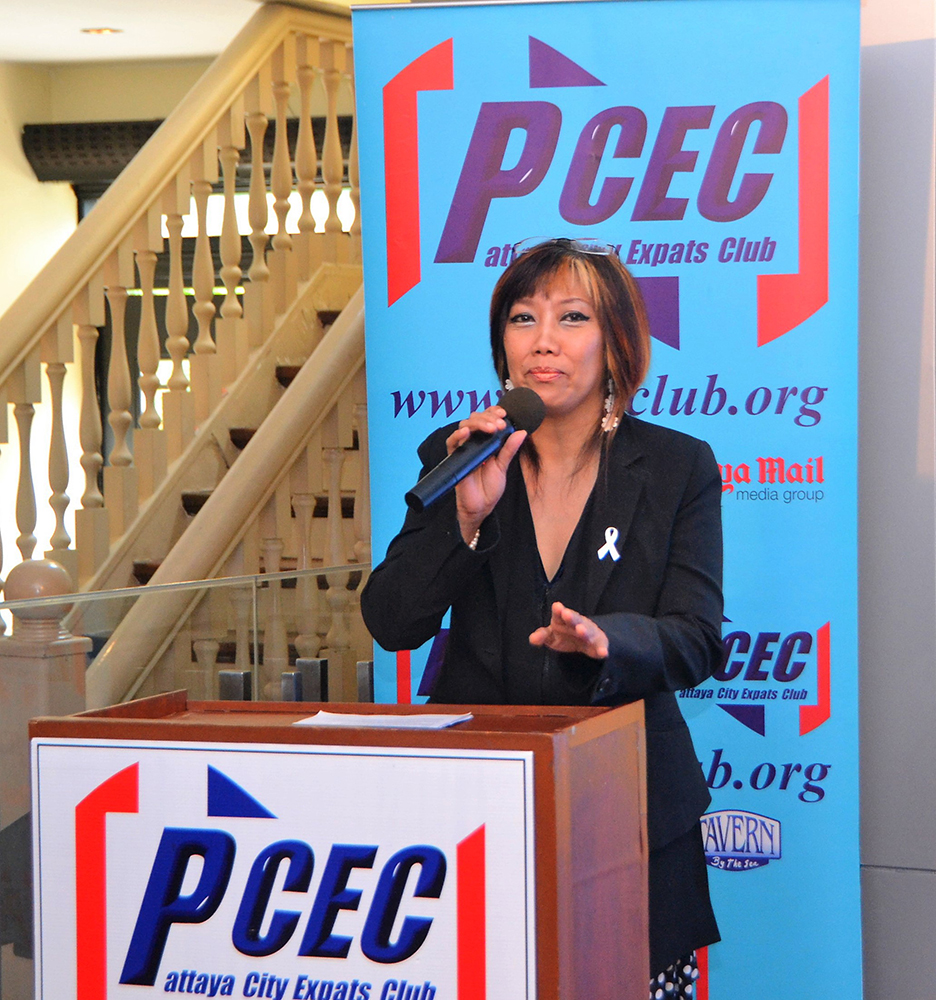
The presentation was followed by MC Ren Lexander, in light of the upcoming 100 day memorial for his late Majesty King Bhumibol Adulyadej, called on Shayachon (Rose) Yangpreeda to speak about the significance of the Buddhist tradition of for holding a memorial 100 days after the death of an individual. He then brought everyone up to date on Club activities and called on Ron Hunter to conduct the Open Forum, where questions are asked and answered or comments made about Expat living in Pattaya.
For more information about the PCEC, visit their website at www.pcecclub.org.




